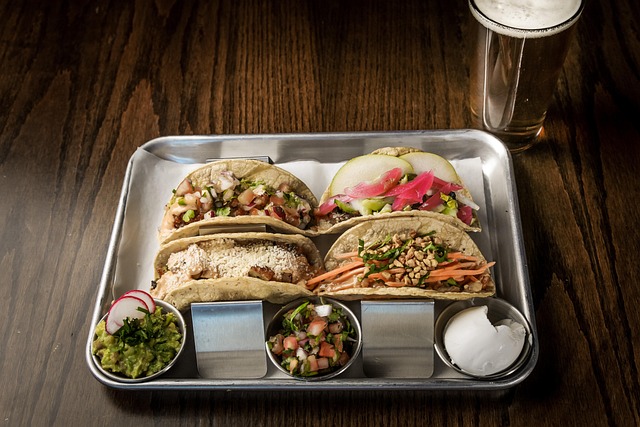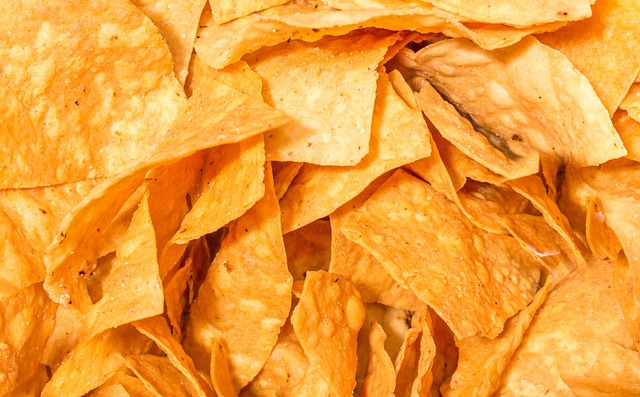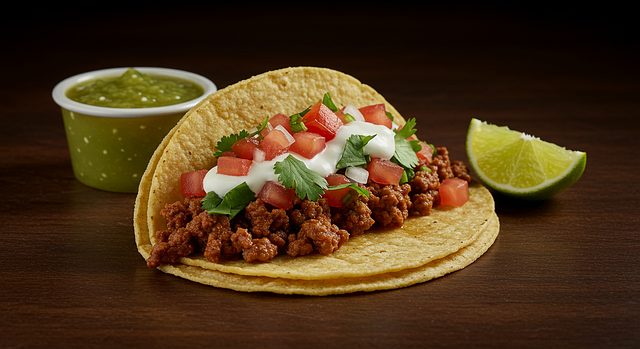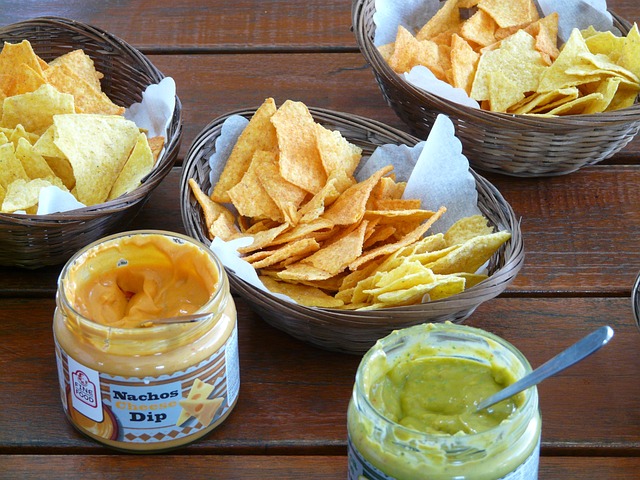Non-GMO Tortilla Chips: Lincoln Park’s Quest for Crispy Perfection
The growing popularity of non-GMO tortilla chips in Lincoln Park reflects a demand for transparent,…….
In the rapidly evolving landscape of food production, the “Non-GMO Tortilla Chips Mission” stands as a beacon of sustainability, health, and transparency in the snack food industry. This initiative aims to transform how tortilla chips are produced, emphasizing non-genetically modified (non-GMO) ingredients, improved environmental practices, and enhanced consumer awareness. As global consumers become increasingly conscious of their dietary choices and environmental impact, understanding this mission is crucial for both businesses seeking to meet growing demands and individuals wanting to make informed decisions. This article delves into the intricacies of this mission, exploring its historical roots, global implications, economic drivers, technological innovations, regulatory framework, challenges, successful implementations, and a glimpse into its future trajectory.
At its core, the Non-GMO Tortilla Chips Mission is a collective effort by farmers, food manufacturers, retailers, and consumers to promote and support tortilla chips produced without genetic modification (GMOs). GMOs refer to organisms whose genetic material has been artificially manipulated using modern biotechnology. The mission advocates for the use of conventional breeding methods and non-GMO seeds in chip production, ensuring that these popular snacks are safe, healthy, and environmentally friendly.
Key Components:
Non-GMO Ingredient Sourcing: The primary focus is on obtaining ingredients from non-GMO sources, including corn, beans, or other vegetables used in tortilla chips. This involves working closely with farmers who practice conventional breeding techniques to produce high-quality, non-modified crops.
Environmental Sustainability: The mission promotes sustainable farming practices that minimize ecological impact. This includes responsible land management, water conservation, and reduced chemical usage. By embracing eco-friendly methods, the initiative contributes to preserving natural resources for future generations.
Consumer Awareness: Educating consumers about the benefits of non-GMO products is a cornerstone of this mission. It empowers individuals to make choices that align with their values by providing transparent information on product labels and packaging.
Supply Chain Collaboration: Successful implementation requires collaboration across the supply chain, from farmers and processors to manufacturers and retailers. This collective effort ensures consistency in non-GMO practices throughout the tortilla chip production process.
The historical context of this mission traces back to growing public concern over GMOs in the late 1990s. As genetic engineering in agriculture gained popularity, consumers began demanding more transparency and choice regarding the food they ate. In response, various organizations and initiatives emerged to promote non-GMO products, setting the stage for what would become a global movement.
The Non-GMO Tortilla Chips Mission has garnered significant international attention and adoption, reflecting a broader trend in the food industry towards sustainability and transparency. Here’s an overview of its global impact:
| Region | Trends and Adoption | Notable Examples |
|---|---|---|
| North America | Strong consumer demand for non-GMO products has led to increased availability of non-GMO tortilla chips from major brands. Many food retailers have dedicated sections for non-GMO snacks, catering to health-conscious consumers. | Chip manufacturers like Whole Foods Market and Nature’s Path offer extensive ranges of non-GMO tortilla chips, while smaller artisanal producers also thrive in this market. |
| Europe | Stringent GMO regulations in the European Union (EU) have driven the adoption of non-GMO practices. The EU’s mandatory labeling of GMOs ensures transparency, allowing consumers to make informed choices. | Brands like Bio-Voedsel (Netherlands) and Naturali (Germany) specialize in organic and non-GMO tortilla chips, appealing to health-focused European consumers. |
| Asia Pacific | Rapidly growing middle class and increasing health consciousness drive demand for premium snacks, including non-GMO tortilla chips. China’s strict regulations on GMO imports further propel the mission’s growth. | In Japan, companies like Kion (Tokyo) produce artisanal non-GMO chips, while India’s market sees a surge in organic snack brands like Bhugra (Mumbai). |
| Latin America | Given the region’s strong agricultural sector and cultural affinity for corn, many Latin American countries are at the forefront of non-GMO tortilla chip production. They export these products globally, contributing to the mission’s reach. | Mexico, known for its corn-based cuisine, has numerous small-scale producers offering non-GMO chips, while Brazil’s agro industry also contributes significantly. |
These regional trends highlight the global nature of the Non-GMO Tortilla Chips Mission. As consumers worldwide become more conscious of their health and environmental impact, the demand for transparent, sustainable snack options continues to grow.
The economic aspects of the Non-GMO Tortilla Chips Mission are multifaceted, influencing both the snack food industry and broader agricultural sectors.
Market Dynamics:
Investment Opportunities:
Technology plays a pivotal role in supporting the Non-GMO Tortilla Chips Mission by enhancing production efficiency, improving ingredient quality, and ensuring product consistency.
The success of the Non-GMO Tortilla Chips Mission heavily relies on robust regulatory frameworks that govern food production and labeling practices across countries. Here’s a snapshot of key considerations:
Despite its growing popularity, the Non-GMO Tortilla Chips Mission faces several challenges that require collaborative efforts to overcome:
Several companies and initiatives have successfully implemented the Non-GMO Tortilla Chips Mission, showcasing its viability and impact:
The Non-GMO Tortilla Chips Mission is poised for significant growth as consumer awareness of health and environmental issues continues to rise. Here are potential avenues for future expansion:
In conclusion, the Non-GMO Tortilla Chips Mission represents a significant shift towards healthier, more sustainable food production practices. With technological advancements, robust regulatory frameworks, and growing consumer awareness, this movement is poised to make a lasting impact on the global food industry.

The growing popularity of non-GMO tortilla chips in Lincoln Park reflects a demand for transparent,…….

Grand Avenue tortilla chip shops thrive on consumer demand for authentic, health-conscious snacks wi…….

The Non-GMO Tortilla Chips Mission is gaining traction, offering health-conscious consumers a guilt-…….

Non-GMO tortilla chip shops are gaining popularity among health-conscious consumers seeking transpar…….

Farmers markets nationwide have witnessed a healthy snack revolution with the surge in popularity of…….

Wrigley Field, known for its baseball charm, introduces non-GMO tortilla chips, aligning with their…….

Fulton Market, once industrialized, has transformed into a culinary hub driven by the rising demand…….

Choosing non-GMO tortilla chips is a healthier, sustainable option that supports transparent, respon…….

Maxwell Street Market in Chicago has become a prominent destination for health-conscious foodies, fe…….

The snack industry has seen a gourmet tortilla chip revolution driven by consumer demand for high-qu…….

International cuisine fusion has transformed the culinary landscape, with chefs creatively blending…….

In recent years, consumers have shown a distinct shift towards natural and organic foods, including…….

Food trucks near Millennium have revitalized the local culinary scene with their diverse, fresh, and…….

Experience the ultimate Chicago culinary treat with our premium, locally sourced, non-GMO tortilla c…….

Choosing Non-GMO Tortilla Chips Mission offers health-conscious consumers a delicious, natural snack…….

In recent years, consumer demand for natural and sustainable food options has fueled the rise of Non…….

Non-GMO tortilla chips, rooted in ancient Mexican culinary traditions, are gaining global popularity…….

Wicker Park, Chicago, is experiencing a food trend centered around non-GMO tortilla chips, with casu…….

Casual eateries are embracing a health-focused trend by incorporating non-GMO tortilla chips into th…….

The growing demand for healthier alternatives to traditional tortilla chips has led to the rise of N…….

In recent years, a growing trend towards healthier and more natural food options has led to the rise…….

Fulton Market has emerged as a culinary hotspot for gourmet tortilla chips, led by a Non-GMO Tortill…….

The growing demand for authentic, high-quality non-GMO tortilla chips in Mexican restaurants reflect…….

Lincoln Park is witnessing a surge in demand for non-GMO tortilla chips as part of health-conscious…….

Pilsen experiences a culinary revolution with the growing popularity of non-GMO tortilla chips, driv…….

Mexican restaurants lead a trend towards authentic, non-GMO tortilla chips, prioritizing taste, text…….